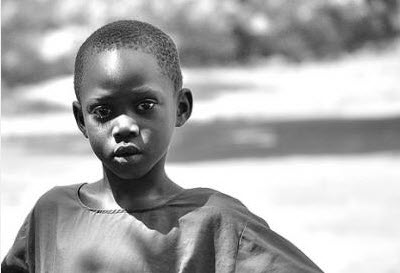It is rarely explained how poverty is perpetuated, leading many to see it as natural and inevitable. If poverty is truly to be tackled, the logic of the debate must be changed.
By Martin Kirk, Joe Brewer

What would you say if we told you that the biggest obstacle to eradicating poverty is the way we think about it? That the human mind and our common sense logic about how the world works is where the battle to end poverty must first be waged? How might that alter how we approach concerns about economic development, healthcare, education, women’s rights, trade relations, and national debt?
We all know what “common sense” is supposed to mean. And it’s a bit like ‘taste’, in that most of us think we have it. If there is anything that epitomises the concept of simple truth, common sense is it. In fact, Merriam-Webster describes it as “sound and prudent judgment based on a simple perception of the situation or facts”.
It is such a feather-light, seemingly benign little phrase. And yet it is a driver of almost all human problems in the world. This is because what we call ‘common sense’ informs everything we do – it is the water our minds swim in. And, like fish in water, we barely recognise it’s there, let alone know how to account for it.
But contemporary research in cognitive science tells us that, rather than being a reliable and simple thing, common sense is a highly complex and largely invisible collection of subconscious mechanisms, intertwined assumptions, persistent bodily experiences and habitual perceptions layered up over our lives. It is shaped and influenced by the cultures we live in, and it can be faulty and misleading in all sorts of ways.
In fact, if there’s one thing we can be sure of, it’s that we can never assume clear or absolute – and certainly never ‘simple’ – common sense. Because we have human brains, we inevitably hold false information; are beholden to the perspective engendered by our own particular lives; and rely on stereotypes and archetypes to understand both ourselves and each other. This means, however well-educated or seemingly dispassionate we strive to be, we are always and forever prone to selective understanding and knee-jerk, irrational, and emotional judgments.
Swimming in common sense soup
So how does this apply to the practice of tackling inequality and poverty? Well, as with everything in life, there’s a lot of ‘common sense’ employed around ideas of inequality and poverty by NGOs, foundations, businesses, government agencies, and the broader public. It is the implied logic we subconsciously employ to filter and process information. For example, it informs whether we understand poor people more as victims or perpetrators of their situation.
This ‘common sense’ is inevitably mixed with ideas of race, class, gender, nationality and any number of other variables, and inevitably affected by factors such as personal experience, age, educational background, social and cultural environment, and even mood. What we usually call fact, data, or empirical evidence therefore exists as one type of seasoning – albeit a very important one – in a highly personalised soup of thought. So understanding the ‘common sense’ logic that exists in our minds – individually and collectively – around inequality and poverty is essential if we are to engender action that might tackle it successfully, not to mention sustainably.
Luckily for anti-poverty activists and groups, a lot is now known about the science of common sense. Linguists have studied it for decades, revealing the mental structures (called “frames”) that organise our social experiences into webs of inferential logic and associated knowledge. Psychologists have identified the emotional triggers that give rise to moral judgments, values and beliefs. Brain researchers have shown how perceptions arise as information processed in our heads. In other words, these frames – this ‘common sense’ – can be defined, studied, measured and affected in a rigorous and systematic manner to improve our effectiveness in real-world campaigns. What is needed now is for practitioners in the field to adopt this learning as a new standard, and put it into everyday practice.
Poor, passive, undifferentiated
To date, precious little work has been done to study common sense when it comes to inequality and poverty. We helped prepare the Finding Frames report (published in 2011) that looked at this question in the British context, and have commissioned some top-line research into global common sense for our global anti-poverty campaign /The Rules, but so much more needs to be done. Anti-poverty advocates need to understand how it varies across geographies and in different cultural contexts if we are to build a coordinated, planetary-scale response to the structural causes of inequality.
What is clear from preliminary studies is that attitudes to poverty in the UK, and very possibly across the Global North, are not encouraging. When we looked at all the available data and did some linguistic analysis, we found a set of very troubling underlying assumptions. The soup, you might say, was off.
The whole study can be seen here, but in summary most people conceive of global poverty as an issue synonymous with “aid”, which is seen as an act of charity. Charity, in turn, rests on the interaction between a powerful giver – be that an individual or a nation – and a grateful receiver. In this common sense, agency lies almost exclusively with the powerful givers; the grateful receivers are simply understood as poor, needy, and without control over their own destiny. Further, in global settings, “the poor” are understood as an undifferentiated group without intrinsic strength, often referred to through the shorthand of “Africa”, where nothing ever changes. It is in the photos of starving children in fund-raising advertisements; in pop concerts designed to raise a few million pounds or dollars; and in nonprofit charity shops where secondhand goods are bought and sold cheaply that this common sense of poverty is perpetuated.
This won’t surprise most people who live in the Global South (another label that tends to cluster people into a category of anonymity). When you are on the receiving end of negative, judgemental or paternalistic frames, you can feel it. What might be more surprising is some of what we found when we looked more at the global picture.
The need for a creation story
One of the major discoveries from our research was that anti-poverty groups, both in North and South, rarely if ever explain where poverty comes from. This is a critical omission in the common sense of poverty. It means there is a gaping hole in the logic that stands in the way of commensurate action to tackle it. In other words, because there is no commonly understood creation story, there is no clear, logically robust understanding of (a) what causes poverty, (b) who the principal actors are, and therefore (c) a solution that can be readily and widely accepted.
Every religion has a creation story. So does every tribe, nation and ideological camp. The creation story provides the original cause from which all else follows. For example, the Story of Original Sin from the Abrahamic religious tradition tells us where human fallibility came from – an apple plucked from the Tree of Knowledge by an unwitting woman in the Garden of Eden. It offers a historic context from which all evil sprang forth onto the world in a moment of human weakness. And it does so with such memorable visual concreteness that most of us can recite the entire tale thousands of years after it was first written down.
Poverty, as we talk about it today, has no creation story. It lacks a commonly understood cause. And so there is no logical solution for how to end it. In other words, there is no mental architecture that helps us intuit and envision it ever being eradicated. To succeed at changing this common sense, anti-poverty groups will need to introduce a creation story
Shifting the narrative of poverty
So where does poverty come from? An in-depth answer to this question is not within the scope of this piece, but we published this article recently to bring attention to what we believe are structural and systemic causes of inequality – a set of financial rules introduced by an elite minority to game the global economy. We have recently launched a new organisation, /The Rules, to embody and promote this common sense in the operational setting of campaigns and collective actions.
Empowered with this creation story, we can mobilise around concrete goals that readily make sense within the context of the economy as a cooperative game. Employing this commonplace frame to make sense of our collective experience, we are able to tell a story about the unfair policy structures that were set up intentionally by a recognisable cohort of people to extract wealth and pool it in their personal coffers. It was this common sense that fuelled the Occupy Movement in 2012, enabling it to spread from a tiny park in New York to the world stage in a few short weeks – the frame used was already widely shared in the minds of people everywhere. We are now deploying it as a narrative vehicle to deliver what we believe to be deep truths about the state of the world we are living in today.
By framing mass poverty as something that is created by human beings, what we do is fill a crucial hole in the logic for the common sense of poverty. And once this hole is filled, all sorts of new options become more concrete and apparent. Immediately, logical targets arise; it becomes apparent where to invest resources to create meaningful change, and how others can get involved. In short, we gain an agenda for change that is bigger and more radical than small transfers of money from rich to poor and one that, crucially, works with the power of common sense.
Deliberate and mindful framing is essential to effective communication. We are at base camp of a mountain of knowledge that should be considered critical to anyone interested in shifting narratives and common sense, including around poverty. At /The Rules we are working to put this knowledge to use in what will be a long uphill battle against entrenched powers that benefit from the status quo. But before we can succeed against them, we have to deeply and thoroughly understand ourselves.
If we are to transform the political and economic systems that create and perpetuate poverty, we will have to change the logic of the debate. Doing this will require that we incorporate the best science of human understanding into our strategies for communication and engagement. The knowledge exists today for us to begin down this long road to cultural change that we believe to be a prerequisite for success.

